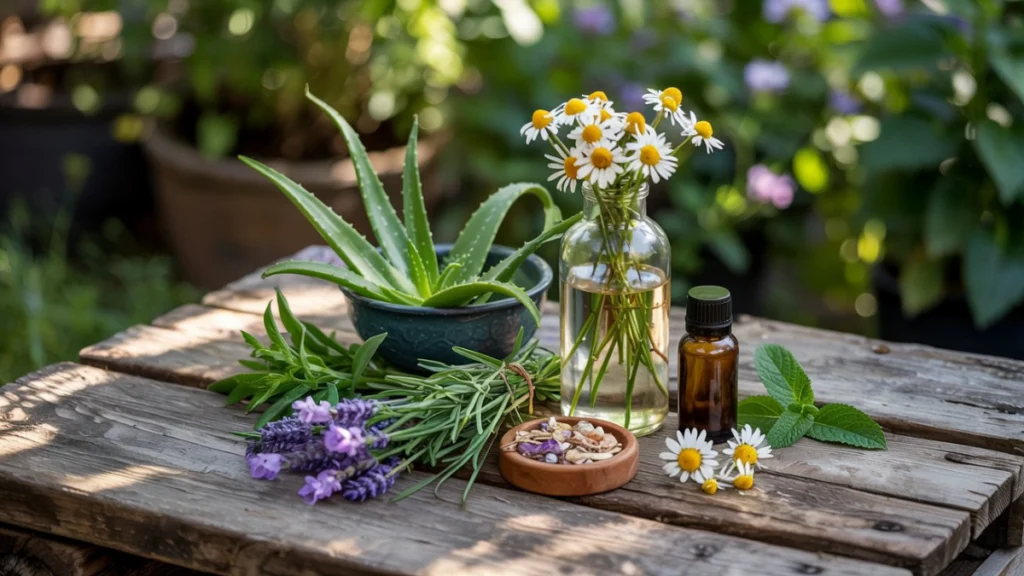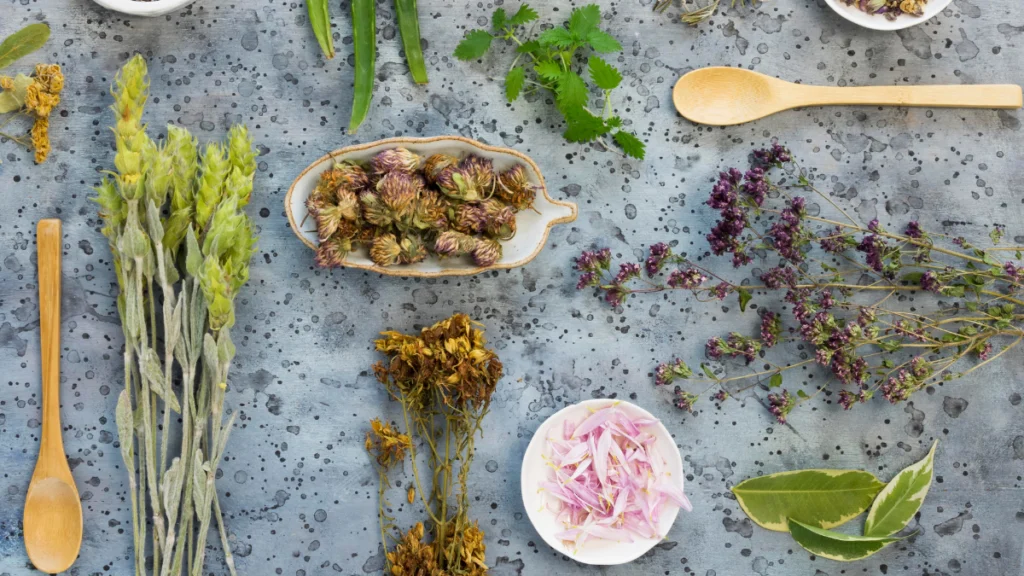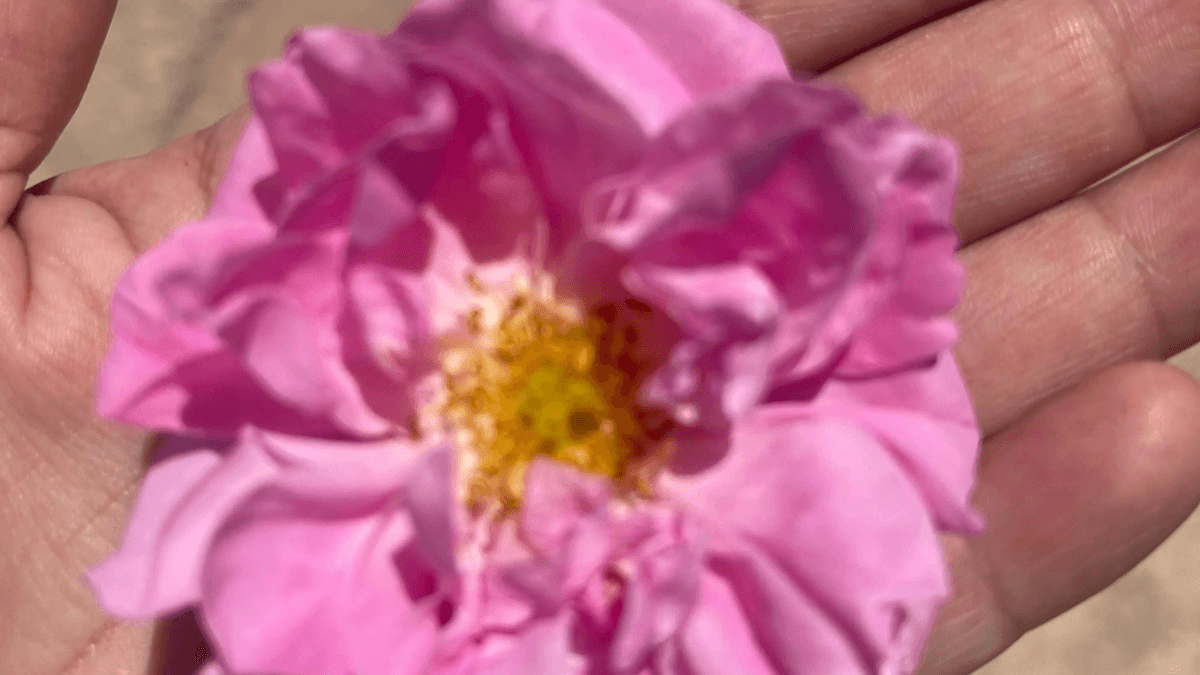Top 10 Anti-Stress Medicinal Plants You Should Know
Imagine a moment when stress feels overwhelming. Your mind races, your shoulders tense, and the world feels too loud. What if a simple solution grew right in your home or garden? Science shows that anti-stress medicinal plants aren’t just trends; they’re proven allies.
Research from the University of Exeter found that moving to greener spaces improves mental health for years. Even indoor plants like lavender or chamomile can lower blood pressure and calm your nerves. These plants aren’t just pretty to look at—they’re tools to help you breathe easier, sleep better, and find calm in chaos.
Picture this: a cup of chamomile tea after a long day, or the soothing scent of lavender while you unwind. These aren’t just small pleasures. They’re part of a growing movement to turn back to nature for mental wellness.
Whether you’re planting a garden or brewing a tea, anti-stress medicinal plants offer practical ways to care for your mind. Let’s explore how these plants can become your daily antidote to stress.
Key Takeaways
- Anti-stress medicinal plants like ashwagandha and lavender reduce anxiety through natural compounds.
- Studies show green spaces improve mental health, with benefits lasting years.
- Plants such as ginkgo biloba and passionflower boost mood and sleep quality.
- Easily grown herbs like aloe vera and english ivy double as air-purifiers and stress relievers.
- Adaptogens like rhodiola rosea help your body handle stress while enhancing energy.
Discovering the Power of Anti-Stress Medicinal Plants
Stress relief herbs are natural ways to handle daily stress. They have been used for centuries to soothe the mind and body. Today, science backs their role in balancing our mental and physical health.

What Are Anti-Stress Medicinal Plants?
Herbs like chamomile and ashwagandha are anti-stress plants. They have compounds that affect our nervous system. Both traditional wisdom and science show they can lessen tension and boost focus.
These plants help by controlling stress hormones like cortisol. This leads to a calming effect.
Key Benefits for Your Health and Wellbeing
- Reduces anxiety symptoms
- Improves sleep quality
- Enhances mood stability
- Supports immune function under stress
Herbs like lavender and valerian root can lower heart rate and blood pressure, a 2022 study in the Journal of Herbal Medicine found.
Adding these plants to your daily life can help you handle stress better. They offer natural support without the side effects of man-made drugs.

How These Calming Herbs Help Manage Anxiety
Many natural stress remedies target the body’s stress response. Herbs like ashwagandha and passionflower lower cortisol, the stress hormone. Studies show these plants help your nervous system relax.
- Cortisol Blockers: Ashwagandha’s active compounds lower cortisol by up to 30% in 68 days, per a 2020 study.
- Neurotransmitter Balance: Passionflower boosts GABA, a brain chemical that eases restlessness and panic.
“Herbs like these don’t just mask stress—they address its root causes,” says Dr. Lisa Chen, a herbal medicine researcher at the University of Michigan.
For centuries, people have used chamomile tea or lavender infusions to calm nerves. Today, lab tests confirm these plants interact with brain receptors to reduce anxiety symptoms safely.
When you choose natural stress remedies, look for extracts standardized for key compounds. Quality matters: herbal supplements with third-party lab results work best. Small daily doses can make a big difference in how you handle stress triggers.
Step-by-Step Guide to Incorporating Stress Relief Herbs into Your Routine
Make calming herbs a part of your daily life with easy steps for morning and evening. These natural remedies help reduce stress and improve your mood.
Morning Rituals with Soothing Botanicals
Begin your day with herbs that lift your mood and clear your mind:
- Try lemon balm tea—steep 1–2 tsp dried leaves in hot water for 5–10 minutes. It has mild sedative effects that ease anxiety and enhance focus.
- Add 20–30 drops of lemon balm tincture to water for a quick morning pick-me-up. Look for certified organic options from brands like Traditional Medicinals.

Evening Techniques for Wind-Down Relaxation
Relax in the evening with herbs that help you unwind and sleep better:
- Diffuse lavender essential oil in your home. A few drops can lower stress hormones like cortisol, as shown in a 2021 study in Journal of Alternative and Complementary Medicine.
- Drink lavender tea before bed—steep 1–2 tsp dried buds for 5–10 minutes. Yogi Tea offers pre-made blends.
Combine these practices with mindful breathing or gentle stretching for more relaxation. Stick to 1–2 methods and adjust as needed.
Diffuse lavender essential oil in your home. A few drops can lower stress hormones like cortisol, as shown in a 2021 study in Journal of Alternative and Complementary Medicine. For a premium lavender essential oil, try this one.
Exploring Natural Stress Remedies for Everyday Life
Adding anxiety-fighting plants to your daily life is simple. You can use them in tea, supplements, or even cooking. They’re like nature’s helpers against stress.
- Teas: Make chamomile or lemon balm tea after meals for calm.
- Supplements: Capsules or tinctures are easy to take on the go.
- Cooking: Use fresh basil or mint in food for taste and stress relief.
Use these plants with mindful activities like deep breathing or walks. For instance, drink lavender tea while reading. Or, add ashwagandha powder to smoothies. Small actions make a big difference. Choose certified brands like Traditional Medicinals or Starwest Botanicals for quality.
Research shows herbal remedies work best with regular use. Begin with one form a day and see how it goes. Your body and mind will appreciate the calm, without needing complicated plans.
Spotlight on Adaptogenic Herbs and Their Unique Properties
Adaptogenic herbs help your body deal with daily stress. They work differently than regular herbs. They help keep your body balanced, making them great for long-term health.
Understanding the Role of Adaptogens
Herbs like ashwagandha and ginseng help your body handle stress better. They lower cortisol, the stress hormone, without causing energy ups and downs. Research shows they improve mental focus and toughness over time.
Adaptogens enhance your body’s natural defenses, says a 2022 review in the Journal of Medicinal Plants. They don’t just mask stress—they help you adapt to its source.
Dosage and Preparation Tips for Maximum Benefit
Here are tips for using adaptogens for stress relief:
- Start with 300–500 mg of ashwagandha daily, taken with meals.
- Use ginseng in tea form: steep 1–2 grams of root in hot water for 10 minutes.
- Pair herbs with calming practices like deep breathing for better results.
Before adding adaptogens, talk to a healthcare provider, if you’re on meds. Choose high-quality brands that test for purity and strength.
Unveiling the Top 10 Medicinal Plants for Stress Reduction
Feeling stressed? These natural remedies can help. Adaptogenic herbs like ashwagandha and rhodiola help your body handle stress. They promote calm without making you sleepy. Let’s look at the top 10 plants backed by science.
- Ashwagandha: This adaptogen lowers cortisol. Studies show it reduces anxiety and fatigue. Take as a capsule or mix powder into smoothies.
- Chamomile: Contains apigenin, which binds to brain receptors to ease anxiety. Brew as tea for better sleep.
- Lemon Balm: Reduces stress hormones. Steep dried leaves as tea to uplift mood and ease digestion.
- Magnolia Bark: Combats cortisol spikes. A 2022 study found it reduced stress in just weeks. Use in capsules or teas.
- Lavender: Aromatherapy with lavender oil cuts cortisol levels. Add a few drops to a diffuser or bath.
- Passionower: Boosts GABA for relaxation. Tea or capsules help with insomnia and nervous tension.
- Valerian Root: Enhances sleep quality. Steep dried root as tea or take capsules for calmness.
- Rhodiola Rosea: An adaptogen that boosts energy and focus. Use extracts or tinctures for mental clarity.
- Holy Basil (Tulsi): Eases stress-induced fatigue. Chew leaves or brew tea to balance mood.
- Ginseng: Improves stress resilience. Take as a tea or supplement to enhance energy and focus.
| Plant | Key Benefit | Best Use |
|---|---|---|
| Ashwagandha | Reduces cortisol | Capsules, powder |
| Chamomile | Improves sleep | Tea |
| Lavender | Calms anxiety | Oil, diffuser |
| Rhodiola | Boosts focus | Extracts |
| Valerian Root | Enhances sleep | Tea, capsules |
Try one or mix a few for your stress relief routine. Always talk to a healthcare provider before starting new herbs.
Ashwagandha: This adaptogen lowers cortisol. Studies show it reduces anxiety and fatigue. Take as a capsule or mix powder into smoothies. For a high-quality ashwagandha extract, you can try this one.
How to Identify Quality Anti-Stress Medicinal Plants in the Market
Choosing the right herbs for plant-based anxiety relief is important. Quality ingredients are crucial for the best results. Here’s how to find top-quality herbs and keep them fresh.
What to Look for When Buying Herbs
- Choose herbs labeled with organic certifications to ensure no harmful additives.
- Check labels for species names (like Ashwagandha or Chamomile) and parts used (leaves, roots, or flowers).
- Buy from sellers who provide clear sourcing details—look for suppliers stating harvest dates and growing regions.
Tips for Authentic Sourcing and Storage
Proper storage keeps herbs potent. Follow these steps:
- Harvest herbs early morning when oils are strongest. Avoid bruised or discolored leaves.
- Dry herbs in a cool, dark place or use a dehydrator. Never microwave or oven-bake at high heat.
- Store dried herbs in airtight glass jars. Avoid plastic, which can leach chemicals or trap moisture.
- Label each container with the herb name and date. Discard any older than 6-12 months.
Always verify labels for FDA-compliant supplements to avoid low-quality blends. Proper handling ensures your plant-based anxiety relief stays effective long-term.
Incorporating Herbal Stress Relief into Your Daily Lifestyle
Adding soothing botanicals to your daily life is easy. Small changes can lead to lasting calm. Look for times when you feel stressed, like during your commute or at bedtime. Then, replace those moments with herbal practices.
- Morning boost: Brew a cup of chamomile or lemon balm tea instead of coffee.
- Midday pause: Use lavender essential oils in a diffuser during work breaks.
- Evening wind-down: Take a warm bath infused with valerian root or passionflower.
| Method | Best Time | Key Botanicals |
|---|---|---|
| Tea | Mornings | Chamomile, ashwagandha |
| Aromatherapy | Afternoons | Lavender, clary sage |
| Supplements | Evenings | Rhodiola, holy basil |
“Consistency, not perfection, is key. Even 10 minutes of herbal practices daily can shift your mindset,” says a 2023 NIH study on stress management.
Combine these steps with mindful habits like deep breathing while sipping tea. Or light oils before bed. Over time, these small choices become routines that naturally reduce stress. Keep track of your progress with a simple journal. See how soothing botanicals make your days better.
Strategies for Maximizing the Benefits of Natural Stress Remedies
Managing stress with herbs is more effective when you plan. Building habits that last is key. Small steps today add up to big changes tomorrow.
Developing Long-Term Relaxation Habits
Creating routines helps your body adjust over time. Here are some tips to keep you on track:
- Use herbal tea as part of your morning coffee break.
- Keep a journal to note how each herb makes you feel.
- Pair herbs with activities like walking or meditation.
Combining Multiple Herbs for Enhanced Effects
Some herbs work better together. Science shows mixtures like ashwagandha and chamomile calm the mind faster. Here’s how to blend safely:
“Herb combinations can boost results without risks when done right.” — Herbal Medicine Journal
- Pick pairs that target different stress symptoms, like valerian for sleep and ginseng for energy.
- Check with a practitioner to avoid interactions.
- Start with small doses and track changes over weeks.
Conclusion
Your journey to managing stress with nature’s remedies starts with understanding the power of anti-stress medicinal plants. Plants like ashwagandha and lavender offer a natural way to support your well-being. By adding them to your daily routine, you create habits that promote balance.
Choosing quality herbs is important. Look for brands that focus on purity and sustainability. This ensures each product meets your health goals. Always talk to a healthcare provider before starting new supplements, if you have existing conditions.
Natural stress remedies aren’t a quick fix, but they can help over time. Try mixing adaptogens with mindful practices. Small steps today can lead to lasting changes in how you handle life’s challenges. Your path to calm starts with informed choices and gentle, daily care.
Source Links
- https://www.thrive.org.uk/get-gardening/plants-to-help-ease-the-mind
- https://www.hsnstore.eu/blog/supplements/well-being/stress/plants-to-reduce/
- https://www.axios.com/local/seattle/2025/03/13/5-healing-herbs-plant-therapy
- https://www.happysprout.com/indoor-plants/stress-anxiety-plants/
- https://www.healthline.com/health/mental-health/tea-for-stress
- https://www.kaybwellness.com/kay-b-blog/the-best-herbal-teas-for-stress-relief-and-relaxation
- https://botanicalinstitute.org/herbs-for-stress/
- https://realitypathing.com/10-healing-herbs-for-stress-relief-and-relaxation/
- https://ohioline.osu.edu/factsheet/HYG-5520
- https://elderherbals.com/the-best-practices-for-storing-and-preserving-herbal-remedies/

